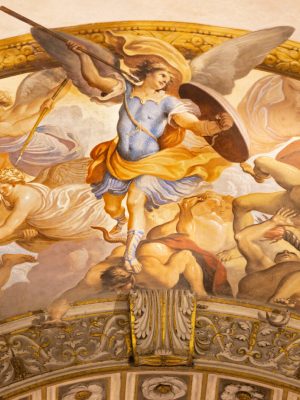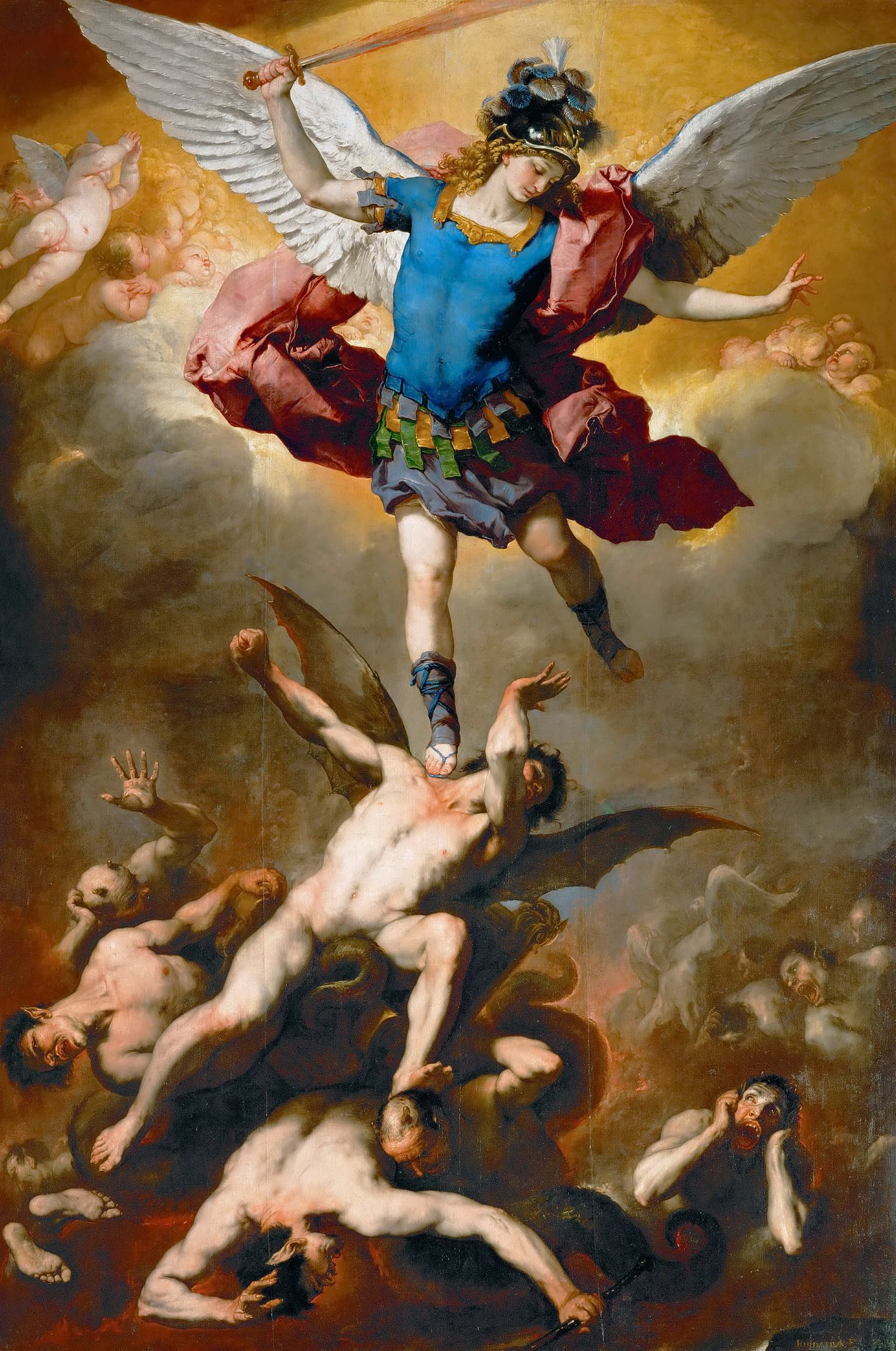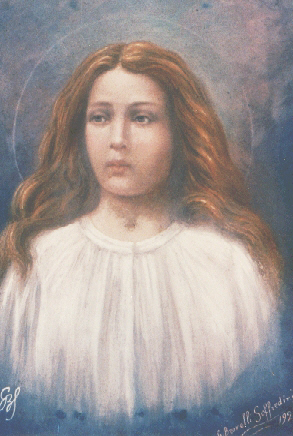Let us endeavor to do our best: beware of the poisonous reptiles— that is to say, the bad thoughts and aridities which are often permitted by God to assail and torment us so that we cannot repel them. Indeed, perchance we feel their sting! He allows this to teach us to be more on our guard in the future and to see whether we grieve much at offending Him. Therefore if you occasionally lapse into sin, do not lose heart and cease trying to advance, for God will draw good even out of our falls, like the merchant who sells theriac [a drug at that time containing supposed life-giving qualities], who first takes poison, then the theriac, to prove the power of his elixir…
This combat would suffice to teach us to amend our habits if we realized our failings in no other way, and would show us the injury we receive from a life of dissipation. Can any evil be greater than that we find at home? What peace can we hope to find elsewhere, if we have none within us? What friends or kindred can be so close and intimate as the powers of our soul, which, whether we will or no, must ever bear us company? These seem to wage war on us as if they knew the harm our vices had wrought them. “Peace, peace be unto you,” my sisters, as Our Lord said, and many a time proclaimed to His Apostles. Believe me, if we neither possess nor strive to obtain this peace at home, we shall never find it abroad.
By the blood which Our Lord shed for us, I implore those who have not yet begun to enter into themselves, to stop this warfare: I beg those already started in the right path, not to let the combat turn them back from it. Let them reflect that a relapse is worse than a fall, and see what ruin it would bring. They should confide in God’s mercy, trusting nothing in themselves; then they will see how His Majesty will lead them from one mansion to another, and will set them in a place where these wild beasts can no more touch or annoy them, but will be entirely at their mercy and merely objects of ridicule. Then, even in this life, they will enjoy a far greater happiness than they are able even to desire. You may think, that if it is so very injurious to desist, it would have been better never to have begun, and to have remained outside the castle. But, as I began by saying, and as God Himself declares: “He that loves danger shall perish by it,” and the door by which we must enter this castle is prayer. Remember, we must get to Heaven, and it would be madness to think we could do so without sometimes retiring into our souls so as to know ourselves, or thinking of our failings and of what we owe to God, or frequently imploring His mercy. Our Lord also says, “No man cometh to the Father but by Me” (I am not sure whether this quotation is correct, but I think so), and, “He that seeth Me seeth the Father also.”. If we never look up at Him and reflect on what we owe Him for having died for us, I do not understand how we can know Him, or perform good deeds in His service. What value is there in faith without works? And what are they worth if they are not united to the merits of Jesus Christ, our only Good? What would incite us to love Our Lord unless we thought of Him? May He give us grace to understand how much we cost Him; that “the servant is not above his lord”; that we must toil for Him if we would enjoy His glory; and prayer is a necessity to prevent us from constantly falling into temptation.
This article is taken from a chapter in The Interior Castle by St. Teresa of Avila, which is available from TAN Books.









